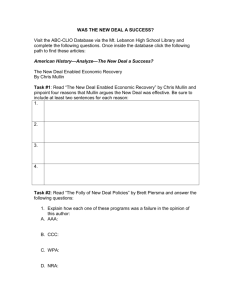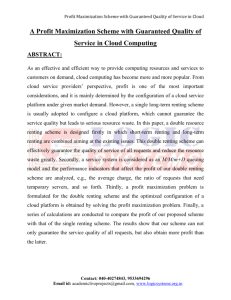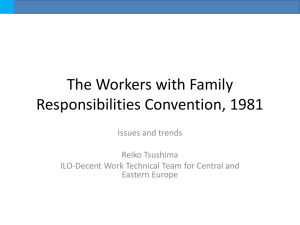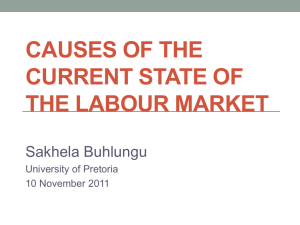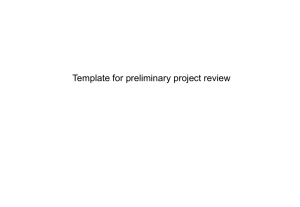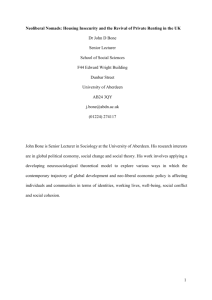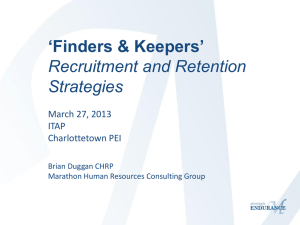Political Discourse Analysis - Housing Studies Association
advertisement
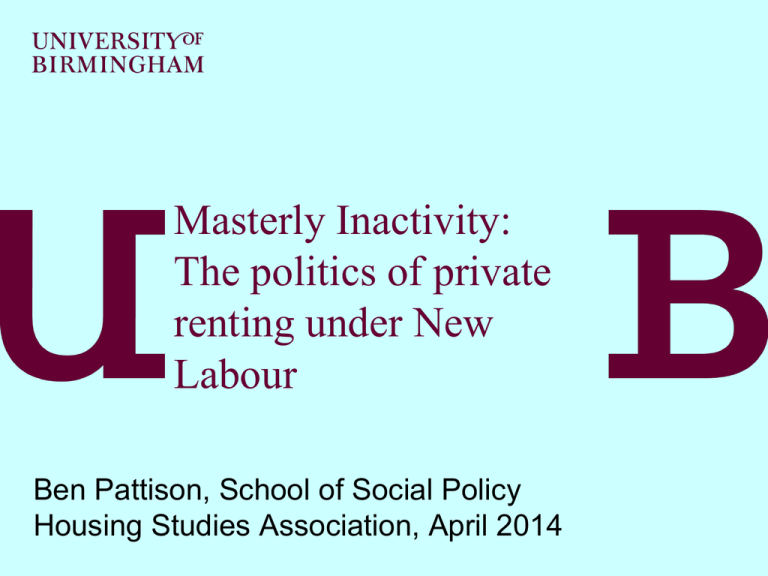
Masterly Inactivity: The politics of private renting under New Labour Ben Pattison, School of Social Policy Housing Studies Association, April 2014 2011-12 2010-11 2009-10 2008-09 2008 2007 2006 2005 2004 2003 2002 2001 2000 1999 1998 1997 1996 1995 1994 1993 1992 1991 1990 1989 1988 1987 1986 1985 1984 1983 1982 1981 1980 Households (millions) The rebirth of private renting Number of households in the private rented sector, England 4.5 4.0 3.5 3.0 2.5 2.0 1.5 1.0 0.5 0.0 Decline of private renting Political drivers were part of a complex set of factors which led to the decline of private renting up to 1979 (Kemp, 2004) Other drivers include: – Rent control – Changing attitudes to tenure and landlords – Demographic change – Mortgage market What was the role of political drivers in the subsequent growth of private renting in England? Political Discourse Analysis Politics is ‘most fundamentally about making choices about how to act’ (Fairclough and Fairclough, 2012, p. 11) ‘political discourse is inherently deliberative’ (ibid, p. 26) Analysis of Hansard and wider political deliberation (biographies, policy, manifestos, diaries) Parliamentary debates are ‘a multi-agent context where a political decision has to be arrived at’ (ibid, p. 200) Thatcher and Major governments Actively promoted limited growth of the private rented sector to complement the development of the property-owning democracy Housing Act 1980: Assured tenancies Housing Act 1988: Assured shorthold tenancies Supported by Housing Benefit to ‘take the strain’ for low income households New Labour consensus Third way consensus which reconciled competing positions ‘Agnostic about tenure’ (Hilary Armstrong quoted in Cowan, 1999, p. 7) Continued previous approach but with greater emphasis on support for vulnerable tenants ‘Masterly inactivity’ (Nick Raynsford quoted in Kemp, 2004, p. 65) ‘nothing to say’ and ‘nothing new to announce’ (Mullin, 2009, p. 45 & 132). Competing Discourses Limit regulation: Conservatives praised ‘the maturity with which the Labour party now approaches the issue of the private rented sector’ (John Butterfill MP, 27 March 2001) Protect vulnerable tenants: ‘It is an unhappy fact that in Sunderland we have rather a lot of bad landlords’ (Chris Mullin MP,12 December 2001) Promote investment in PRS: ‘an expansion in private renting could ease two major problems: first, the problem of severe shortages of accommodation, and secondly, the need for regeneration’ (Lord Best, 27th February 2002) Social and economic drivers This political approach of ‘masterly inactivity’ retained a policy and regulatory environment which enabled the growth of private renting to occur After 2001, a range of other social and economic drivers supported this rapid growth including: – Buy to Let mortgages – Demographic changes (e.g. students, migration, single person households) – House price increases mediated by the mortgage market – Labour market The end of the consensus Growing concern from MPs and Peers from 2006 onwards: – ‘perhaps the time has now come for some regulation for this sector’ (Lord Best, 2nd April 2008) – Buy to Let described as a ‘pernicious new phenomenon’ (Mullin, 2010, p. 152) Rugg Review of Private Rented Sector published in 2008 Slow and limited response from Labour government ‘The attempt to create a big tent which would appeal to voters and interests with opposed aspirations and conflicting priorities was almost certain one day to end in disillusion and defeat’ (Rawnsley, 2010, p. 741). Conclusions The private rented sector was a marginal concern for politicians for most of the New Labour period New Labour created a Third Way consensus which sought to reconcile competing discourses on the role of the private renting This approach of ‘masterly inactivity’ retained a policy and regulatory environment which enabled the growth of private renting to occur References Cowan, D. (1999) Housing Law and Policy. Basingstoke, Macmillan Press. Department for Communities and Local Government (2013) English Housing Survey 2011/2012: Headline Report. London, Department for Communities and Local Government. Fairclough, I. & Fairclough, N. (2012) Political Discourse Analysis: A method for advanced studies. Abingdon, Routledge. Kemp, P. (2004) Private Renting in Transition. Coventry, Chartered Institute of Housing. Mullin, C. (2009) A View from the Foothills: The diary of Chris Mullin. London, Profile Books. Mullin, C. (2010) Decline and Fall: Diaries 2005 to 2010. London, Profile Books. Rawnsley, A. (2010) End of the Party: The rise and fall of New Labour. London, Penguin. Thank you Email: BMP248@bham.ac.uk Twitter: @bmpattison

